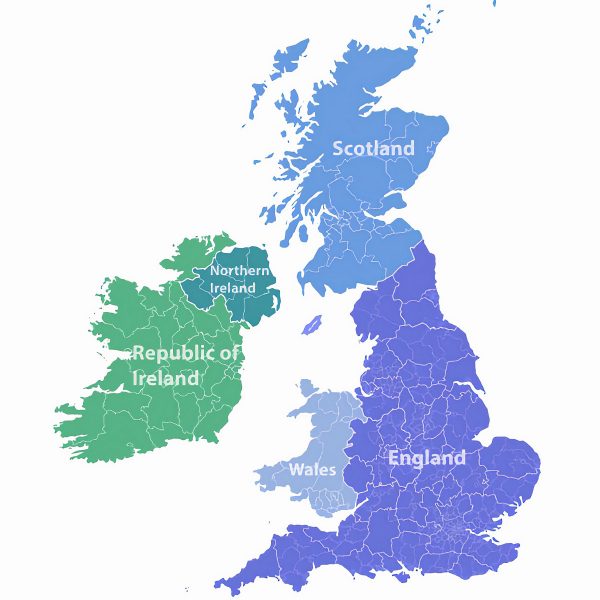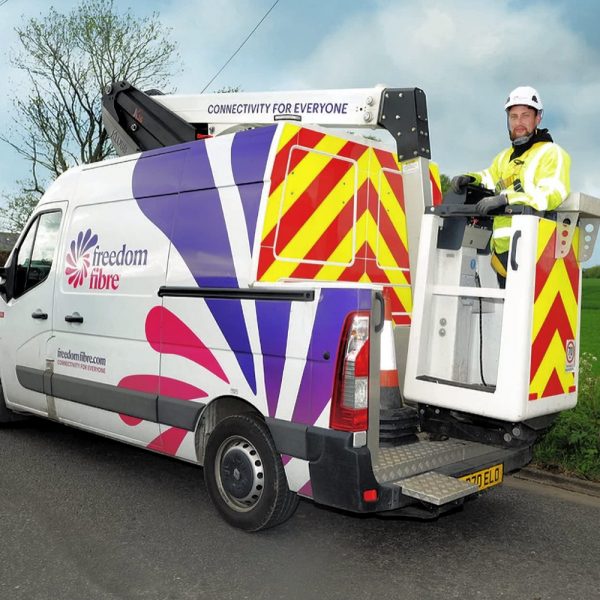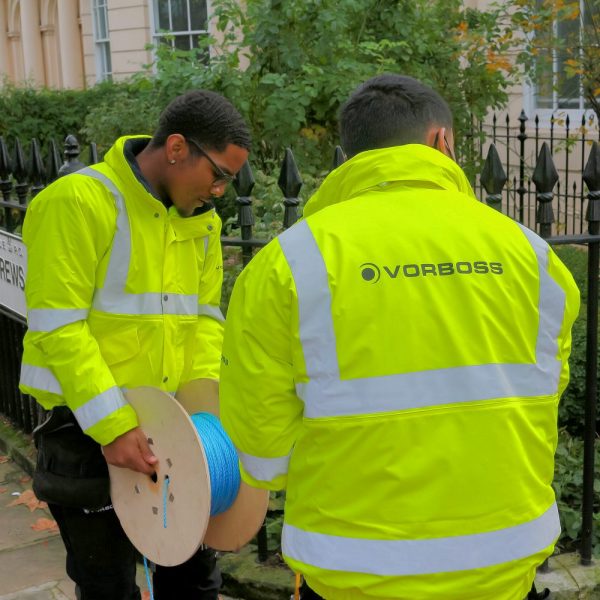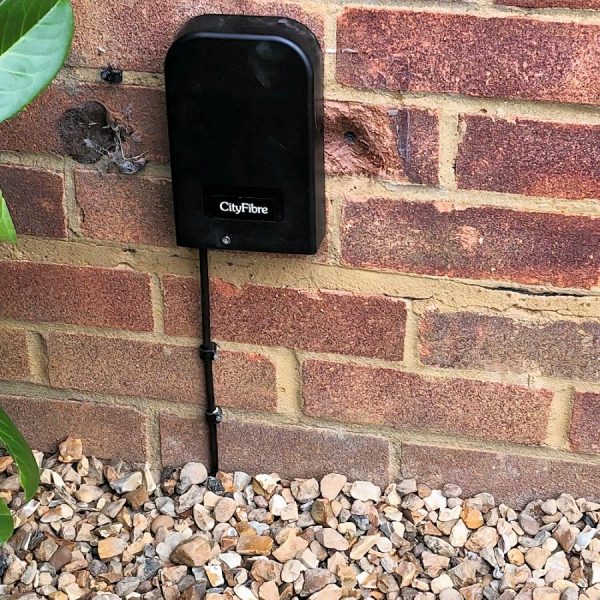Sponsored Links
UPDATE UK Digital Britain Reactions - Broadband ISPs and Industry Comments
Posted: 17th Jun, 2009 By: MarkJ
The late publication of yesterdays final Digital Britain report, which contained important news about how a universal commitment to 2Mbps broadband would be achieved and illegal file sharing tackled, meant that we haven't been able to get much meaningful feedback from the industry until this morning. Please find below a collection of all the comments we've received so far; this will be updated as more arrive.
Most of the above comments come from Internet access focused groups and ISPs, but it's also interesting to see what the creative industry has been saying, not least about the new anti-piracy measures.
It's clear from the comments above that nearly everybody has been able to find both positive and negative elements to the report, though we must admit that some of its proposals (e.g. tax on telephone lines) were more than we had expected. Don't forget to check out our own summary articles from yesterday:
More comments coming in..
UPDATE - 18th June 2009:
The comments keep coming..
UPDATE - 19th June 2009:
Here's another one.
Felix Geyr, Managing Director of Be Broadband says:
"We're not against the levy, but it would have been Be's preference for this investment to have been put into providing the next generation of broadband. As a specialist broadband provider whose members have a clear need for higher broadband speeds, we will continue to invest in our networks to provide tomorrow's broadband and are keen to here the Government's plans for investment in this area."
"With regards to Digital Piracy, Be has always complied with any legal requirements that get sent to us from the appropriate legal authorities", Geyr continues. "We will continue to do so with the announced requirement for ISPs to send warning letters to customers who regularly engage in unlawful downloads."
"We're not against the levy, but it would have been Be's preference for this investment to have been put into providing the next generation of broadband. As a specialist broadband provider whose members have a clear need for higher broadband speeds, we will continue to invest in our networks to provide tomorrow's broadband and are keen to here the Government's plans for investment in this area."
"With regards to Digital Piracy, Be has always complied with any legal requirements that get sent to us from the appropriate legal authorities", Geyr continues. "We will continue to do so with the announced requirement for ISPs to send warning letters to customers who regularly engage in unlawful downloads."
Paul Lawton , Managing Director of Opal , the b2b division of the TalkTalk Group said: "The UK is already at risk of being left behind and committing to a minimum of 2Mbps by 2012 – while good news for domestic users - is not going to help UK businesses to effectively compete in the future or enable business owners to accommodate requests for flexible working.
For flexible working to be a viable option, home workers need to be able to enjoy the same “experience” (speed, performance and security) as they would in the office ... A minimum recommendation of 2Mbps is a step in the right direction and the benefits will certainly be felt by consumers. However, Digital Britain’s focus on downstream speeds of only 2Mbps will limit broadband’s wider use, because for businesses it is the upstream which is the limiting factor."
For flexible working to be a viable option, home workers need to be able to enjoy the same “experience” (speed, performance and security) as they would in the office ... A minimum recommendation of 2Mbps is a step in the right direction and the benefits will certainly be felt by consumers. However, Digital Britain’s focus on downstream speeds of only 2Mbps will limit broadband’s wider use, because for businesses it is the upstream which is the limiting factor."
David Williams, CEO of Avanti Communications, said:
"Avanti believes that terrestrial infrastructure has persistently over-promised and under-delivered to rural communities and we do not see this changing. Satellite broadband is the only technically proven and economically viable solution to the problem of the 10% of population identified by the Digital Britain report and we welcome the announcement that the provision of service to these consumers will be accelerated by government intervention and funding, which we expect to benefit our HYLAS satellite.
We note with interest the desire to deliver 50Mb services to the last third or the population and welcome the fund established to pay for this. Avanti's Next Generation Hercules project, already the subject of government seed funding, will be well placed to deliver this fund's objectives.
With approximately 17.6m broadband lines installed, the planned fund's 50p per line per month supplement would generate over £100m per annum. Avanti is confident that 50Mb Universal Broadband can be delivered by the Hercules project comfortably within these resources."
"Avanti believes that terrestrial infrastructure has persistently over-promised and under-delivered to rural communities and we do not see this changing. Satellite broadband is the only technically proven and economically viable solution to the problem of the 10% of population identified by the Digital Britain report and we welcome the announcement that the provision of service to these consumers will be accelerated by government intervention and funding, which we expect to benefit our HYLAS satellite.
We note with interest the desire to deliver 50Mb services to the last third or the population and welcome the fund established to pay for this. Avanti's Next Generation Hercules project, already the subject of government seed funding, will be well placed to deliver this fund's objectives.
With approximately 17.6m broadband lines installed, the planned fund's 50p per line per month supplement would generate over £100m per annum. Avanti is confident that 50Mb Universal Broadband can be delivered by the Hercules project comfortably within these resources."
Henry Aubrey-Fletcher, President of The Country Land and Business Association, said:
"The CLA has said time and time again that Government investment is an essential prerequisite to rolling out broadband to all. This is a fair first attempt at trying to resolve the digital divide but more needs to be done if those in remoter parts of the country are to have a future in digital Britain.
As more people gain access to broadband, the strain on the service will increase and speeds will slow. It is also true that by 2012 a broadband speed of just two megabytes a second will not be sufficient for many applications. That’s why the CLA is calling for five megabytes a second for all under a universal service commitment.
Countless studies have underlined our point that, without a clear commitment from Government, rural areas will become digital age outcasts."
"The CLA has said time and time again that Government investment is an essential prerequisite to rolling out broadband to all. This is a fair first attempt at trying to resolve the digital divide but more needs to be done if those in remoter parts of the country are to have a future in digital Britain.
As more people gain access to broadband, the strain on the service will increase and speeds will slow. It is also true that by 2012 a broadband speed of just two megabytes a second will not be sufficient for many applications. That’s why the CLA is calling for five megabytes a second for all under a universal service commitment.
Countless studies have underlined our point that, without a clear commitment from Government, rural areas will become digital age outcasts."
ISPA Secretary-General, Nicholas Lansman, said:
"I am pleased that the Government has taken the position advocated by ISPA that unlawful online copyright infringement should be reduced through offering viable legal alternatives. ISPA will assess in more detail the obligations on ISPs being proposed, but supports the use of existing legal channels to bring targeted civil action against repeat infringers. ISPA doubts the effectiveness of technical sanctions and would urge that the initial proposals be given every chance to succeed before such sanctions are considered."
ISPA notes that the report outlines recommendations to ensure that everyone in the UK can receive download speeds of 2Mbps. ISPA advocates the increased use of the Internet and is committed to working with Government to ensure everyone who wishes to access the Internet can do so. ISPA would continue to urge the Government to acknowledge the importance of demand as well as supply side issues in ensuring the increased take-up of Broadband.
ISPA welcomes Government efforts to encourage investment in infrastructure to create a competitive market for high speed Broadband for consumers. ISPA notes that the proposal to place a 50pence per month levy on all fixed line broadband households to create a Next Generation Fund was enabled by the 'historic fall in telecoms prices'. In effect customers and the ISP industry are being penalised for successfully bringing prices down."
"I am pleased that the Government has taken the position advocated by ISPA that unlawful online copyright infringement should be reduced through offering viable legal alternatives. ISPA will assess in more detail the obligations on ISPs being proposed, but supports the use of existing legal channels to bring targeted civil action against repeat infringers. ISPA doubts the effectiveness of technical sanctions and would urge that the initial proposals be given every chance to succeed before such sanctions are considered."
ISPA notes that the report outlines recommendations to ensure that everyone in the UK can receive download speeds of 2Mbps. ISPA advocates the increased use of the Internet and is committed to working with Government to ensure everyone who wishes to access the Internet can do so. ISPA would continue to urge the Government to acknowledge the importance of demand as well as supply side issues in ensuring the increased take-up of Broadband.
ISPA welcomes Government efforts to encourage investment in infrastructure to create a competitive market for high speed Broadband for consumers. ISPA notes that the proposal to place a 50pence per month levy on all fixed line broadband households to create a Next Generation Fund was enabled by the 'historic fall in telecoms prices'. In effect customers and the ISP industry are being penalised for successfully bringing prices down."
Most of the above comments come from Internet access focused groups and ISPs, but it's also interesting to see what the creative industry has been saying, not least about the new anti-piracy measures.
Feargal Sharkey, Chief Executive of UK Music, said:
"We believe that Government’s proposed requirements for Internet Service Providers (ISP’s) to notify subscribers identified as infringing copyright; and to collect anonymised information on serious repeat infringers, coupled with additional powers for Ofcom to implement technical measures against those individuals who persist to infringe copyright, will still not be enough to meet their stated ambitions of reducing file-sharing by 70-80% within 2-3 years.
The UK Music industry fully embraces the principle of universal broadband. However, against the undoubted commercial opportunities this would bring, our members cannot continue to innovate and invest in the shadow of an illegal peer-to-peer ecosystem. To tackle this issue, we need the cooperation of all Internet Service Providers [ISPs]."
"We believe that Government’s proposed requirements for Internet Service Providers (ISP’s) to notify subscribers identified as infringing copyright; and to collect anonymised information on serious repeat infringers, coupled with additional powers for Ofcom to implement technical measures against those individuals who persist to infringe copyright, will still not be enough to meet their stated ambitions of reducing file-sharing by 70-80% within 2-3 years.
The UK Music industry fully embraces the principle of universal broadband. However, against the undoubted commercial opportunities this would bring, our members cannot continue to innovate and invest in the shadow of an illegal peer-to-peer ecosystem. To tackle this issue, we need the cooperation of all Internet Service Providers [ISPs]."
BPI Chief Executive, Geoff Taylor, said:
"It's clear what Government needs to do to boost the digital music market and achieve its stated objective of significantly reducing illegal downloading by 70-80% in two years - that's to act now to require all ISPs to apply a fair system of ‘graduated response’. This would comprise a series of notices followed by technical measures to steer consumers away from illegal filesharing and onto legal online services that reward artists and record labels for their work.
Evidence shows that the Government’s ‘write and then sue’ approach won't work. And Government appears to be anticipating its failure by lining up backstop powers for Ofcom to introduce technical measures later. This digital dithering puts thousands of jobs at risk in a creative sector that the government recognises as the driver of the digital economy."
"It's clear what Government needs to do to boost the digital music market and achieve its stated objective of significantly reducing illegal downloading by 70-80% in two years - that's to act now to require all ISPs to apply a fair system of ‘graduated response’. This would comprise a series of notices followed by technical measures to steer consumers away from illegal filesharing and onto legal online services that reward artists and record labels for their work.
Evidence shows that the Government’s ‘write and then sue’ approach won't work. And Government appears to be anticipating its failure by lining up backstop powers for Ofcom to introduce technical measures later. This digital dithering puts thousands of jobs at risk in a creative sector that the government recognises as the driver of the digital economy."
It's clear from the comments above that nearly everybody has been able to find both positive and negative elements to the report, though we must admit that some of its proposals (e.g. tax on telephone lines) were more than we had expected. Don't forget to check out our own summary articles from yesterday:
UK Digital Britain - Universal 2Mbps Rural Broadband SolutionsUPDATE - 1:09pm:
https://www.ispreview.co.uk/story/2009/06/16/uk-digital-britain-universal-2mbps-rural-broadband-solutions.html
UK Digital Britain - Illegal Broadband ISP File Sharing Solutions
https://www.ispreview.co.uk/story/2009/06/16/uk-digital-britain-8211-illegal-broadband-isp-file-sharing-solutions.html
UK Digital Britain - Tax on Phone Lines to Fund Next Gen Broadband
https://www.ispreview.co.uk/story/2009/06/16/uk-digital-britain-tax-on-all-phone-lines-to-fund-next-gen-broadband.html
More comments coming in..
Adam Binks, Vispa Internet's Commercial Director, said:
"I am pleased that the Government is finally taking some proactive steps towards combating illegal file sharing. Many Internet Service Provides have already taken steps to warn users who are identified for infringing copyright laws, Vispa included. However, realistically, I don't believe that a 70-80% reduction in such activity will be seen within a 2 year timeframe.
With regard to the government's pledge to provide all British households with a minimum 2Mbps service, I'm certainly not against the levy, however I do believe that the funds should be invested into to providing next generation broadband for all, rather than playing catch up using old technology. Britain is at serious risk of massively falling behind the rest of the world. Online content and applications are increasing rapidly, the government therefore needs to re-think its commitment and concentrate on next generation technology."
"I am pleased that the Government is finally taking some proactive steps towards combating illegal file sharing. Many Internet Service Provides have already taken steps to warn users who are identified for infringing copyright laws, Vispa included. However, realistically, I don't believe that a 70-80% reduction in such activity will be seen within a 2 year timeframe.
With regard to the government's pledge to provide all British households with a minimum 2Mbps service, I'm certainly not against the levy, however I do believe that the funds should be invested into to providing next generation broadband for all, rather than playing catch up using old technology. Britain is at serious risk of massively falling behind the rest of the world. Online content and applications are increasing rapidly, the government therefore needs to re-think its commitment and concentrate on next generation technology."
A Virgin Media spokesperson said:
"As the government's Digital Britain report acknowledges, the market for super-fast broadband remains embryonic. But we think that demand is set to grow rapidly in the coming years and the government is right to focus on digital Britain, not just digital cities.
The government has a potentially useful role to play in supporting and promoting network investment in those areas of the country where it's clear the market won't provide and, at first glance, its proposals seem like a balanced response."
"As the government's Digital Britain report acknowledges, the market for super-fast broadband remains embryonic. But we think that demand is set to grow rapidly in the coming years and the government is right to focus on digital Britain, not just digital cities.
The government has a potentially useful role to play in supporting and promoting network investment in those areas of the country where it's clear the market won't provide and, at first glance, its proposals seem like a balanced response."
Nicola Green ( O2 ) said:
We do not believe that threatening customers is the right approach. Sharing of music between friends has always been one of the ways most people discover new music, and shared music experiences are one of the best ways for acts to build fanbases and gain exposure for their music.
The key in the digital age is to create new models to discover and share music (and other content) in a way which ensures the people who create the music can be supported and rewarded. The iPhone and iTunes is a good example of how to make this work for customers and rights holders
People should be able to share and grow their passion for music as much as those who make music must be supported in creating that passion. Without them there is no music, and without the fans there is no industry. So we think it is better for ISPs and rights holders to work together to develop new services which offer people the content they want, how they want it, for a fair price.
With regards to the tax on copper lines our position is as follows: We are not convinced of the case for a tax on broadband consumption, which could have unintended consequences on customer demand or supply side investment from ISPs.
We do not believe that threatening customers is the right approach. Sharing of music between friends has always been one of the ways most people discover new music, and shared music experiences are one of the best ways for acts to build fanbases and gain exposure for their music.
The key in the digital age is to create new models to discover and share music (and other content) in a way which ensures the people who create the music can be supported and rewarded. The iPhone and iTunes is a good example of how to make this work for customers and rights holders
People should be able to share and grow their passion for music as much as those who make music must be supported in creating that passion. Without them there is no music, and without the fans there is no industry. So we think it is better for ISPs and rights holders to work together to develop new services which offer people the content they want, how they want it, for a fair price.
With regards to the tax on copper lines our position is as follows: We are not convinced of the case for a tax on broadband consumption, which could have unintended consequences on customer demand or supply side investment from ISPs.
A spokeswoman for Tiscali said:
Illicit P2P
"We are pleased that the Government has taken into account the learnings from the notifications trial carried out by ISPs as part of the MOU. We still believe that legal breach of copyright requires legal measures and we are confident that Ofcom will oversee the right balance of proportionality, responsibility and cost."
Fixed Line Levy
"We obviously don't like to pass additional cost to our customers, but if this funds a wider availability of equally high speed fixed broadband and the fund created is directed to extended or new fixed line initiatives, then we think that both customers and operators will consider this beneficial."
Illicit P2P
"We are pleased that the Government has taken into account the learnings from the notifications trial carried out by ISPs as part of the MOU. We still believe that legal breach of copyright requires legal measures and we are confident that Ofcom will oversee the right balance of proportionality, responsibility and cost."
Fixed Line Levy
"We obviously don't like to pass additional cost to our customers, but if this funds a wider availability of equally high speed fixed broadband and the fund created is directed to extended or new fixed line initiatives, then we think that both customers and operators will consider this beneficial."
UPDATE - 18th June 2009:
The comments keep coming..
John Donaldson, MD, AboveNet said:
"The Carter report is a step forward for a better connected Digital Britain but the focus for fibre connectivity really should start with the business community. There is still a long way to go in terms of providing adequate connectivity to businesses before we can even imagine delivery to the home.
In addition, more remote areas are requiring broadband access, and the high-concentration of users in urban areas demanding services and content-rich data on the move are creating an ever-increasing bandwidth demand. With this in mind, the UK needs world-class backhaul network solutions. For speed, reliability and security, these really need to be fibre.
However, the Government contradicts itself, claiming to encourage fibre optic rollout, but at the same time taxing every meter of fibre optic that is lit. This counterproductive tax is in conflict with the development of essential next generation networks."
"The Carter report is a step forward for a better connected Digital Britain but the focus for fibre connectivity really should start with the business community. There is still a long way to go in terms of providing adequate connectivity to businesses before we can even imagine delivery to the home.
In addition, more remote areas are requiring broadband access, and the high-concentration of users in urban areas demanding services and content-rich data on the move are creating an ever-increasing bandwidth demand. With this in mind, the UK needs world-class backhaul network solutions. For speed, reliability and security, these really need to be fibre.
However, the Government contradicts itself, claiming to encourage fibre optic rollout, but at the same time taxing every meter of fibre optic that is lit. This counterproductive tax is in conflict with the development of essential next generation networks."
Simon Davies , IDNet , said:
"We think that the levy [50p on all fixed telephone lines] is a very good idea. Hopefully it will help to increase the penetration of higher-speed services into those areas where it is not commercially logical to do so, thus reducing the digital divide. However, why this has been made distinctly separate from the USO is baffling as they are both trying to address the same problem. After all, it is not possible to legislate changes to the Laws of Physics. Many remote locations are often just too far from an Exchange and often out-of-reach of mobile transmitters to receive a strong enough signal. "
"We think that the levy [50p on all fixed telephone lines] is a very good idea. Hopefully it will help to increase the penetration of higher-speed services into those areas where it is not commercially logical to do so, thus reducing the digital divide. However, why this has been made distinctly separate from the USO is baffling as they are both trying to address the same problem. After all, it is not possible to legislate changes to the Laws of Physics. Many remote locations are often just too far from an Exchange and often out-of-reach of mobile transmitters to receive a strong enough signal. "
UK ISP TalkTalk said:
"The Digital Britain Report fails to acknowledge what almost every informed commentator knows: that determined file sharers will find a way around any technical roadblock that can be put in place. Our position on file sharing has always been clear; we refuse to disclose our customers' details unless the case against them has been proven in court."
"The Digital Britain Report fails to acknowledge what almost every informed commentator knows: that determined file sharers will find a way around any technical roadblock that can be put in place. Our position on file sharing has always been clear; we refuse to disclose our customers' details unless the case against them has been proven in court."
UPDATE - 19th June 2009:
Here's another one.
Entanet's Marketing Manager, Darren Farnden, said:
"In terms of copyright holders' rights, we believe the Government needs to properly understand the implications of continuing to act against alleged offenders based on the rights owners tracking IP addresses and then informing the ISPs to take action. Whilst it may seem the most logical approach (Entanet already acts on every infringement notice it receives), we are concerned by the potential for inaccuracies to result in individuals being wrongly penalised. This is because IP addresses can be spoofed, redirected and even hijacked.
Correspondingly, we think that placing the responsibility for monitoring illegal activity squarely on the shoulders of ISPs equally isn't the answer to the problem. Rather, we think that rights owners need to review their own business models to take into account how they can maximise availability to the market while protecting their copyright and profiting from it. Nonetheless Entanet is keen to understand further how the regulator might wish ISPs to work together to reduce such activity."
"In terms of copyright holders' rights, we believe the Government needs to properly understand the implications of continuing to act against alleged offenders based on the rights owners tracking IP addresses and then informing the ISPs to take action. Whilst it may seem the most logical approach (Entanet already acts on every infringement notice it receives), we are concerned by the potential for inaccuracies to result in individuals being wrongly penalised. This is because IP addresses can be spoofed, redirected and even hijacked.
Correspondingly, we think that placing the responsibility for monitoring illegal activity squarely on the shoulders of ISPs equally isn't the answer to the problem. Rather, we think that rights owners need to review their own business models to take into account how they can maximise availability to the market while protecting their copyright and profiting from it. Nonetheless Entanet is keen to understand further how the regulator might wish ISPs to work together to reduce such activity."
Search ISP News
Search ISP Listings
Search ISP Reviews
Latest UK ISP News








Cheap BIG ISPs for 100Mbps+
150,000+ Customers | View More ISPs
Cheapest ISPs for 100Mbps+
Modest Availability | View More ISPs
Latest UK ISP News
Helpful ISP Guides and Tips
Sponsored Links
The Top 15 Category Tags
- FTTP (5531)
- BT (3518)
- Politics (2542)
- Openreach (2298)
- Business (2266)
- Building Digital UK (2247)
- FTTC (2045)
- Mobile Broadband (1977)
- Statistics (1790)
- 4G (1668)
- Virgin Media (1621)
- Ofcom Regulation (1465)
- Fibre Optic (1396)
- Wireless Internet (1391)
- FTTH (1382)
Sponsored
Copyright © 1999 to Present - ISPreview.co.uk - All Rights Reserved - Terms , Privacy and Cookie Policy , Links , Website Rules

































